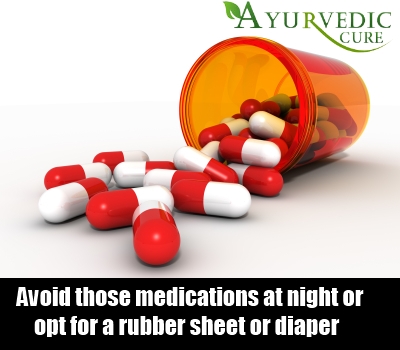[toc]Bed wetting is a problem that most parents consider should be restricted to infants and toddlers. But that is not really true. There are a lot of children who continue wet beds till they enter their teens due to a variety of problems.
However, instead of feeling ashamed of this, you should seek help and opt for treatments and prevention rather than showing your child that your are ashamed of him or her.
Worth Buying
Doing so leads to permanent psychological damage and will not really help either of you. So if you are suffering from this problem with your child, it is best to solve it and prevent it by mutual consent rather than imposing. Here are tips on:
How To Prevent Bed Wetting
Knowledge And Awareness
A lot of children are not really aware about the facts of bed wetting and whether it is right or wrong. They simply opt for the easier way out by wetting their beds rather than going to the toilet.
As your child crosses about 3 years of age, you can start talking to them about this, making them aware this. Don’t say things like only babies wet beds, because that is not factually correct. But encourage them to address the problem that they should not be doing this any more.
Tell them that bed wetting or Enuresis is a very common problem and that you will work together towards a solution. This will motivate your child to opt for treatment rather than avoiding the problem all together.
Avoid Liquids Late At Night
Often, parents force their children to drink huge glasses of milk right before going to bed. But what this is doing is triggering the bladder even more and leading to bed wetting.
Instead, tell them to have their liquids, water, milk, etc. 45 minutes prior to going to bed. This will help them prevent bed wetting. To compensate, increase the liquid intake during the day.
Use The Bathroom More
Another remedy here to prevent bed wetting is to make your children use the bathroom more during the day time. For instance, you can also make them urinate more before going to bed so that their bladders are absolutely empty.
The bladder should be trained to be used through out the day so that it understands that day time is meant for relieving more. Not using the bladder more during the day means that later on medical problems can also emerge.
Alarm
These days you can buy what is called a bed wetting alarm, which tends to go off when one has to pee. So as you are about to pee, the alarm goes off and the child can be taken to the bathroom.
These alarms are conditioned according to the brain’s response of a full bladder and after 10-12 weeks, you tend to get up yourselves to use the bathroom. Also, if one does get up any time of the night, especially children, you should encourage them to use the bathroom once to avoid bed wetting.
Diapers
There are diapers and pull ups available for older children, which can be used too. It is really not a permanent solution but often using this helps the child to wake up more and use the toilet, rather than wearing a diaper. However, this is something that both the parents and child should decide.
Medical Conditions
Enuresis
Even though bed wetting is not considered a serious problem, it can mean that there is something triggering off the constant urine flow. It can be a medical condition. There is something named Enuresis, which makes the child urinate more at night and in the bed.
Only a doctor can understand the symptoms of the same and prescribe medicines for it. Remember that the medicines for this problem come with side effects and so you should not start off those with your children, without consulting the doctor.
Medications
Often medications tend to make one urinate more often. Have you ever noticed that your child is bed wetting only at certain times of the month or year. It could be that certain medicines like cough syrup make them very sleepy and drowsy.
In such conditions, the child is not aware about the fact that he or she needs to pee and thus wets the bed. If so, then it is best to avoid those medications at night or opt for a rubber sheet or diaper.
DDAVP Or Desmopressin Acetate
This is a medication that can be given to children to prevent bed wetting. However, this should be given only after consulting a pediatrician because the medicaiton reduces the amount of urine that the body make.
It also regulates hormones that produce urine and helps the kidney to hold water for longer and thus less goes to the bladder. However, these are medications that come with their share of side effects and will not offer a permanent prevention solution for bed wetting.
Emotional Trauma
Bed wetting is often a side effect of emotional trauma or an underlying psychological problem and thus can be prevented by resolving the same. Often children dealing with traumatic periods or issues like death, divorce of parents, peer pressure, bullying, etc. tend to wet their beds.
So work out an appointment with the counselor or encourage discussion of such issues with yourself to prevent bed wetting. As these problems are resolved, your child feels more confident and thus stops with wetting the bed at night.
Night Lifting
This is a technique where the parents get up in the middle of the night and then wake the child to use the bathroom. This is important for children who are not yet familiar with the practice of bladder control.
Also, if the child is too tired, they might simply not get up on their own. Though it means that the parents too have to get up at night, in the long run the child gets habituated to getting up at night and thus uses the bathroom. Following this routine does prevent and cure bed wetting in the long run.


















